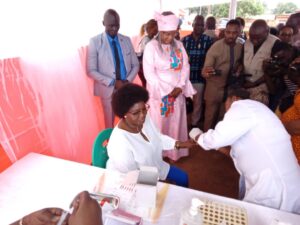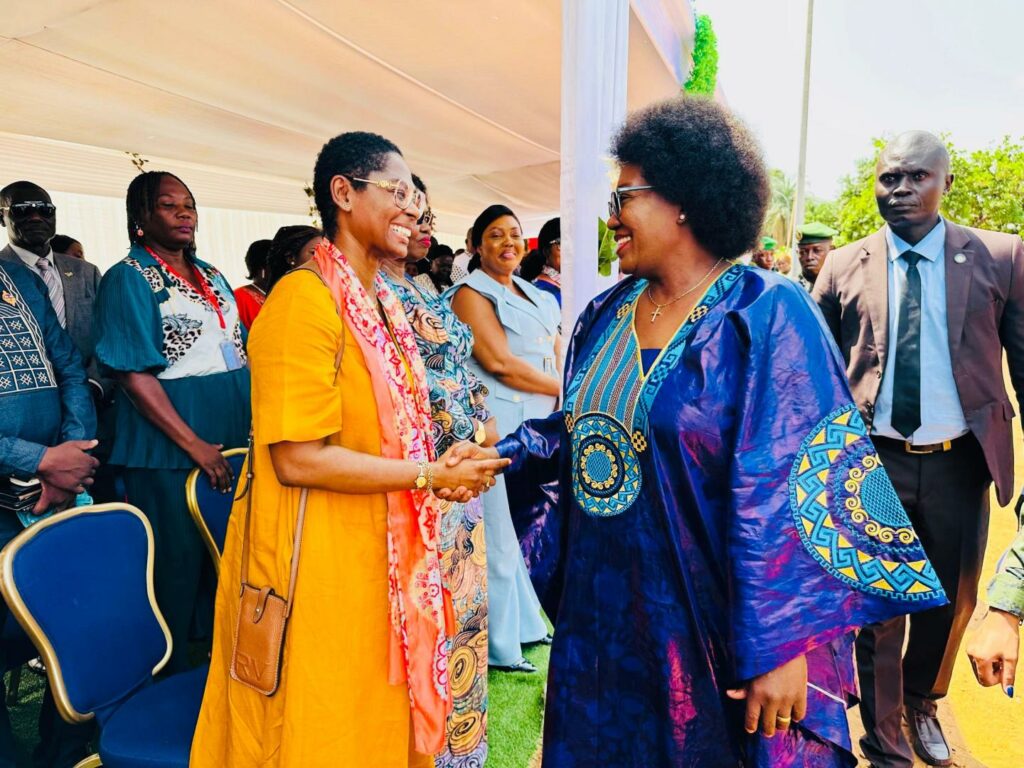An estimated 20% of children born each year carry the sickle cell trait, and around 2% are born with the major form of the disease.
The Central African Republic marked World Sickle Cell Day belatedly, under the high patronage of Her Excellency Madame Brigitte Touadéra, First Lady of the Republic. The ceremony was held at the Sickle Cell Research and Treatment Center in Bangui, in the presence of representatives from the Ministry of Health, the World Health Organization (WHO), and several technical and financial partners.
In the Central African Republic, sickle cell disease is a major public health issue. It is estimated that around 20% of children born each year carry the sickle cell trait, and about 2% are born with the severe form of the disease. However, systematic neonatal screening is not yet in place, and many children are diagnosed late—often after several episodes of severe complications.
During the ceremony, Ophélia, a 31-year-old patient living with sickle cell disease, shared her story with great dignity, revealing that she had been abandoned by her father because of her illness. Her testimony shed light on the social challenges still faced by many sickle cell patients and reinforced the call for greater compassion, support, and the fight against stigma.

Speaking at the event, the First Lady made a strong appeal:
“People living with sickle cell disease must not be isolated or stigmatized. Our role is to support them, stand by them, and allow them to live in dignity.”
She also reiterated her personal commitment, illustrated by the construction of a new kitchen at the Treatment Center to improve the living and dietary conditions of hospitalized patients.
For her part, the WHO Representative in the Central African Republic, Dr. Marie Roseline Darnycka Bélizaire, delivered a message of commitment:
“Sickle cell disease is a serious genetic illness, yet it is too often neglected. It remains a major public health challenge in the Central African Republic, where many children die due to the lack of early diagnosis and adequate care. WHO is committed to supporting the efforts of the Government and its partners to improve prevention, screening, treatment, and follow-up for people living with this disease. We must put an end to the avoidable suffering caused by sickle cell disease. The time to act is now—together—by making it a national priority.”
The ceremony brought together institutional stakeholders, health professionals, families, and partners around a shared goal: to better understand, care for, and support people living with sickle cell disease in the Central African Republic.







OTHER ARTICLES
Editorial — Prevent, inform, and act for women’s health in Africa
Kenya : Government Prioritises Maternal Health and Strengthens Support for Community Health Promoters
Strengthening pandemic prevention, preparedness, and response capacities in Senegal using the “One Health” approach